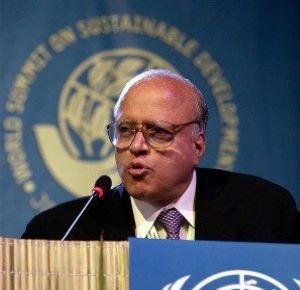By: Dipak Kurmi
The swift announcement of four posthumous Bharat Ratna awards for Karpoori Thakur, P.V. Narasimha Rao, Charan Singh, and M.S. Swaminathan has raised eyebrows, suggesting a strategic move in anticipation of the upcoming Lok Sabha elections. Prime Minister Narendra Modi, known for his departure from political norms, seems indifferent to criticism regarding the timing and potential political motives of these awards. Rather than adhering to conventional political etiquette, Modi takes pride in his unapologetic approach to breaking liberal protocols. Even media observers sympathetic to Modi couldn’t ignore the political undercurrents surrounding this decision, prompting a closer examination of the move.
The crucial query at hand revolves around the anticipated electoral advantages sought by the BJP and the Prime Minister through this move. However, the potential impact of awarding Karpoori Thakur may be limited, as contemporary Bihar voters are predominantly familiar with figures like Lalu Prasad Yadav and Nitish Kumar. The BJP’s stronghold alongside Nitish Kumar over the past two decades might overshadow the relevance of the Nitish Kumar/Janata Dal (United) constituency. Despite this, the formidable presence of the Lalu Prasad Yadav/Tejashwsi Yadav-led Rashtriya Janata Dal (RJD) remains a potent Opposition force in the state. Bestowing the Bharat Ratna on Karpoori Thakur is unlikely to alter this political landscape. On another note, the award for Charan Singh appears akin to expressing gratitude towards Jayant Choudhury and the Rashtriya Lok Dal, considering their imminent return to the BJP-led National Democratic Alliance (NDA).
The conferment of the Bharat Ratna on P.V. Narasimha Rao appears to be a deliberate move to slight the Congress Party and its leaders, Sonia Gandhi and Rahul Gandhi. This seemingly unexplained resentment harbored by BJP/RSS leaders against the Nehru-Gandhi legacy comes at a time when the latter is marginalized in the country’s political landscape, with no apparent indication of a family comeback to power. Prime Minister Modi, known for his assertive approach, subscribes to the idea of thoroughly diminishing political rivals and ideological adversaries, a strategy characteristic of BJP’s political tactics. Despite the lack of political resonance for Narasimha Rao in Telangana during his lifetime and posthumously, the Bharat Ratna bestowed by Modi is unlikely to significantly boost BJP’s electoral prospects in the state.
The Bharat Ratna conferred upon M.S. Swaminathan highlights a perceived lack of understanding by the BJP regarding the intricate politics of Tamil Nadu. Despite symbolic gestures like the inclusion of the fictional “Sengol” symbol in the new Parliament building, aiming to evoke the Tamil connection with Varanasi, the award to Swaminathan is expected to yield minimal political impact in the state.
The BJP’s aspirations to gain influence in the state through seemingly vague gestures of goodwill, invoking the umbrella of India/Hindu cultural glory, are likely to face significant challenges. Tamil cultural identity, deeply rooted in regional consciousness, resists attempts to homogenize Indian/Hindu culture, contrary to the essence of the Tamil spirit. The BJP’s Hindi-heartland Hindutva approach may encounter difficulties in permeating the rich heritage of the land of Pallavas and Cholas, marked by the profound traditions of Tirukkural and the devotional expressions of Shaivita and Vaishnavite Tamil saint-poets. The religious fervor in the Tamil region stands distinct from the BJP and RSS’s approach to political religion.
Prime Minister Modi displays persistence and determination in his ambition to propagate the Hindutva ideology throughout the nation, masquerading it under the banner of nationalism. However, the success of this endeavor is uncertain, as it appears to infringe upon a fundamental constitutional principle of the modern Indian polity – federalism, which upholds the autonomy of regional powers and voices. Noteworthy in Modi’s political approach is the incessant emphasis on India’s civilizational grandeur and the imposition of political authority stemming from the BJP’s stronghold in Hindi-speaking states. The imperious demeanor reminiscent of the Congress in the 1950s and 1960s persists within the BJP under PM Modi’s leadership, albeit with a shift towards a subtler form of cultural dominance. Despite gestures of goodwill towards Tamil culture, the absence of shared political power renders these efforts seemingly ineffective.
Despite securing a comfortable majority in the parliamentary arena without overwhelming dominance in the southern and eastern regions, Prime Minister Modi harbors ambitions beyond mere central governance. His vision extends to placing the BJP in power throughout the entire country, prompting a strategic approach of forging alliances. This outreach involves various parties, including the Janata Dal (Secular) led by former Prime Minister H.D. Deve Gowda in Karnataka, the Telugu Desam Party (TDP) in Andhra Pradesh, the RLD in Uttar Pradesh, breakaway factions of the Shiv Sena and the Nationalist Congress Party (NCP) in Maharashtra, the Shiromani Akali Dal in Punjab, and the JD(U) in Bihar. Drawing parallels with historical coalition-building, such as the CPI(M) under Jyoti Basu forming the Left Front, the BJP’s approach differs notably. While the CPI(M) maintained unity without undermining smaller allies, the BJP faces criticism for weakening its partners, except for the Akali Dal.
Renowned political scientist Rajni Kothari characterized the Congress as an inclusive umbrella party, where diverse factions coexisted. In contrast, the BJP, constrained by its rigid ideological foundations, cannot adopt a similar umbrella approach. Nonetheless, the party is compelled to seek partnerships and allies both within the political arena and beyond. Prime Minister Modi has been ardently engaged in forging connections with diverse factions across the nation. The downfall of Congress was attributed to a belief that India had no alternative to the party’s dominance. Similarly, the BJP, driven by a desire to propagate Hindutva as a unifying force, is nearing levels of hubris. Modi’s recent strategy of using the Bharat Ratna award to appeal to diverse groups and regions appears weak, primarily due to the apparent inability to conceal the party’s inclination to rule the nation akin to the Congress during the initial decades post-Independence. While a political party’s aspiration for dominance is natural, there are inherent limits to such aspirations, and the BJP under PM Modi seems to be approaching this threshold. (The writer can be reached at dipaknewslive@gmail.com)







